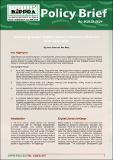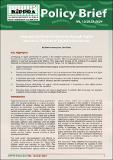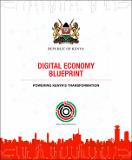| dc.description.abstract | In the 21st century, digital literacy has become
a fundamental skill for individual empowerment,
economic progress, and societal development.
Technology’s rapid advancement has transformed
how we communicate, work, and access information.
However, a digital divide persists, leaving a significant
portion of the population without the necessary skills to
navigate the digital landscape. This policy brief explores
the critical need for comprehensive digital literacy
programmes to bridge this gap and ensure equitable
access to opportunities in the digital age. SDG) target for Internet and broadband aims that by
2025, 60 per cent of youth and adults should have
achieved at least a minimum level of proficiency
in sustainable digital skills. Digital skills have been
defined as skills that enable people to access, use, and
benefit from the Internet, enhance Internet penetration,
and access to employment and entrepreneur
opportunities. It is estimated that by 2030, digital skills
will be required in most of the jobs in Kenya. Limited
knowledge and skills in ICT in the ASALs of Kenya
are a significant barrier to households’ Internet use,
which prevents them from exploiting its benefits even
during emergencies or disasters. Digital skills are
measured from basic to intermediate to advanced
levels. Basic skills, including hardware, software, and
basic online tasks, form the foundation for functioning
in society. | en |




